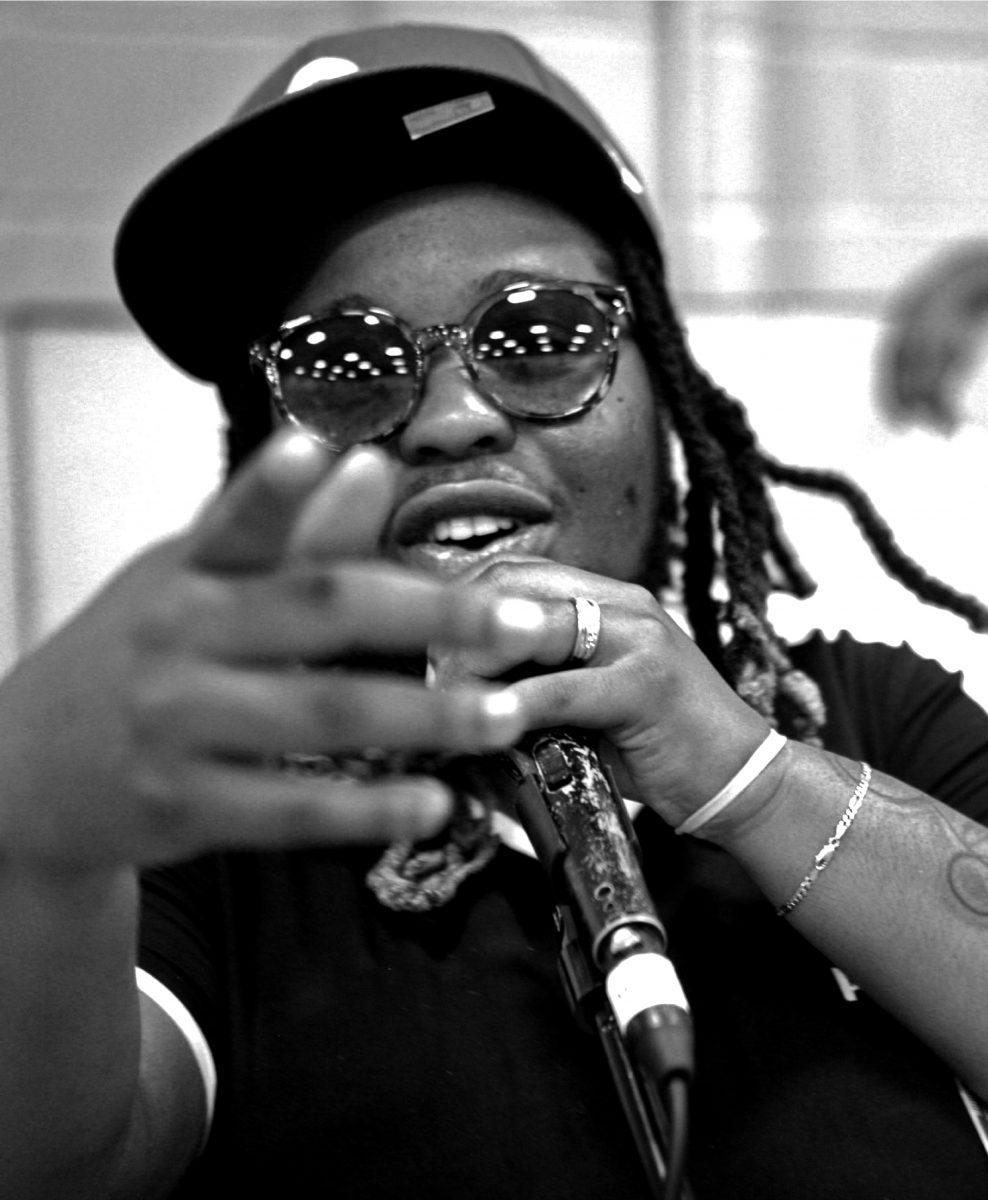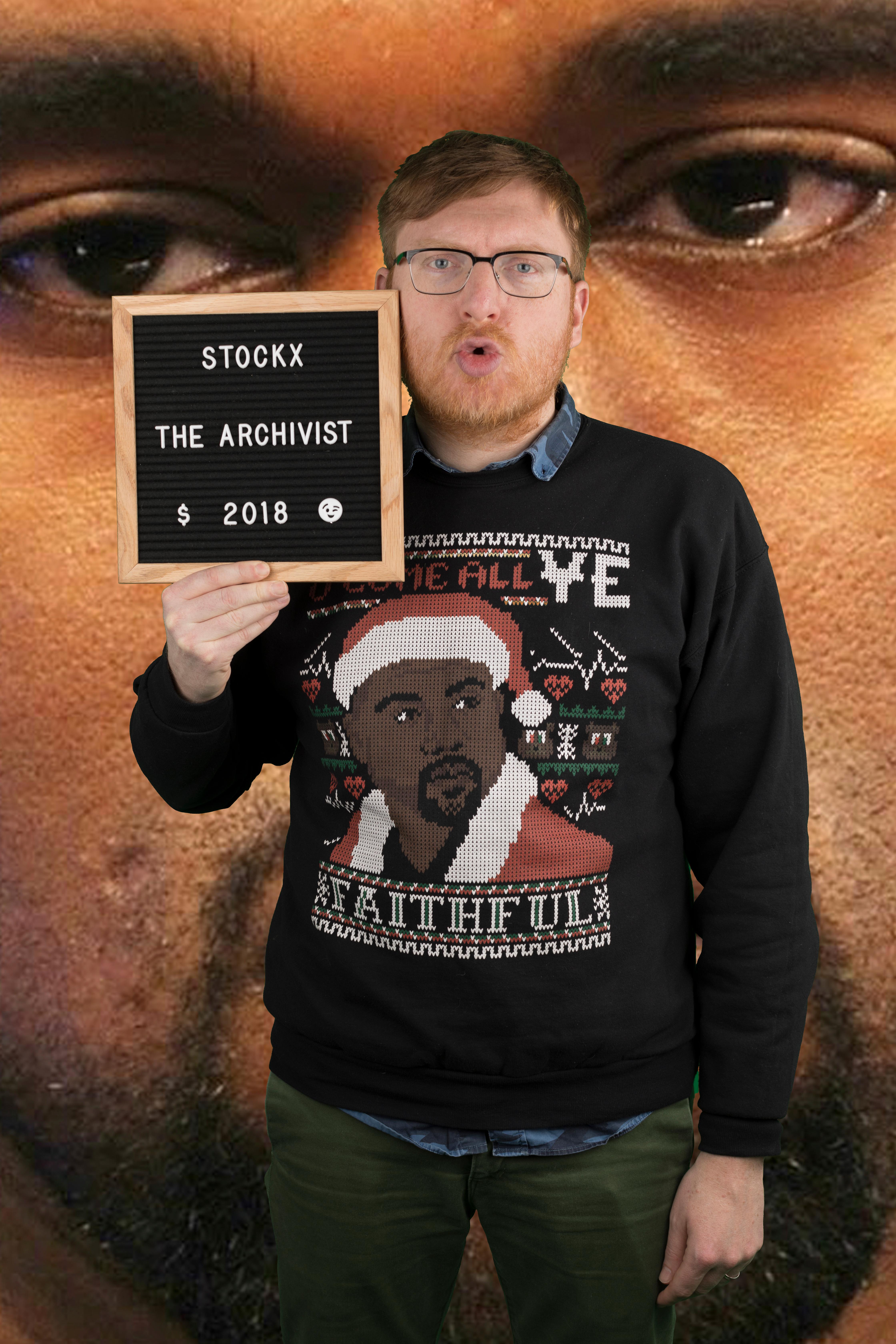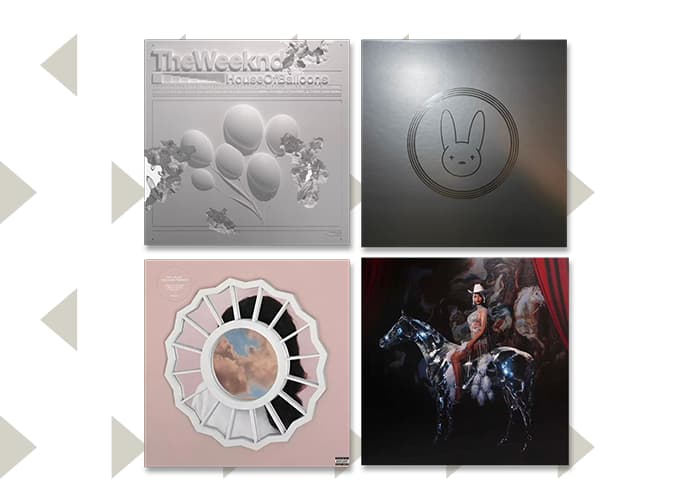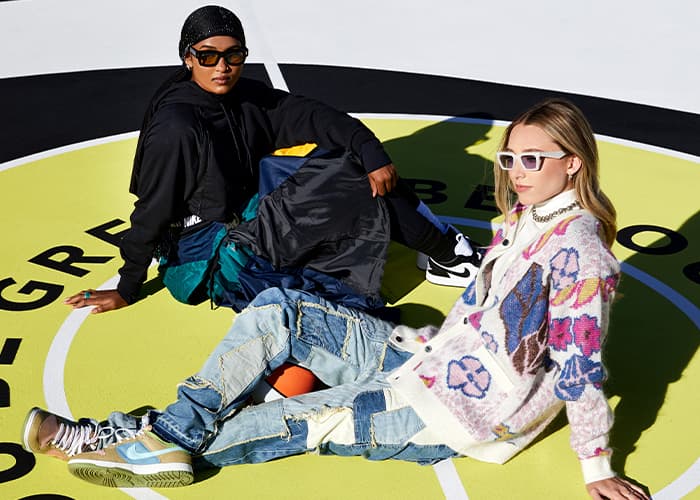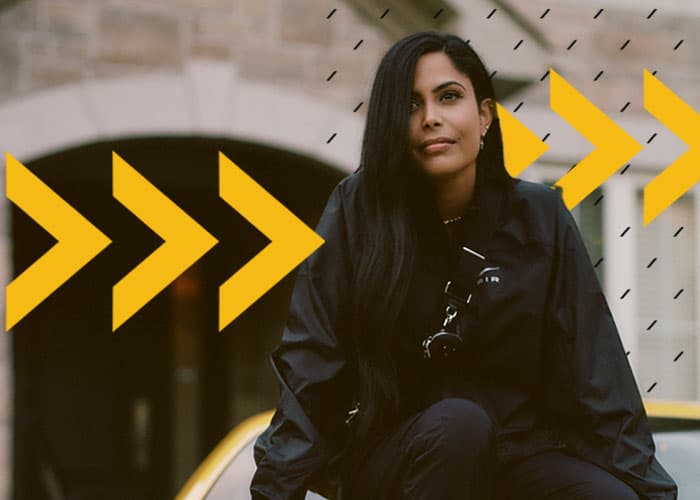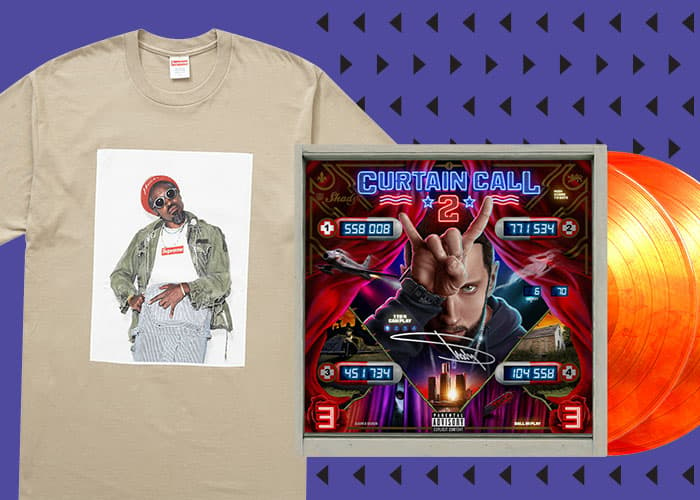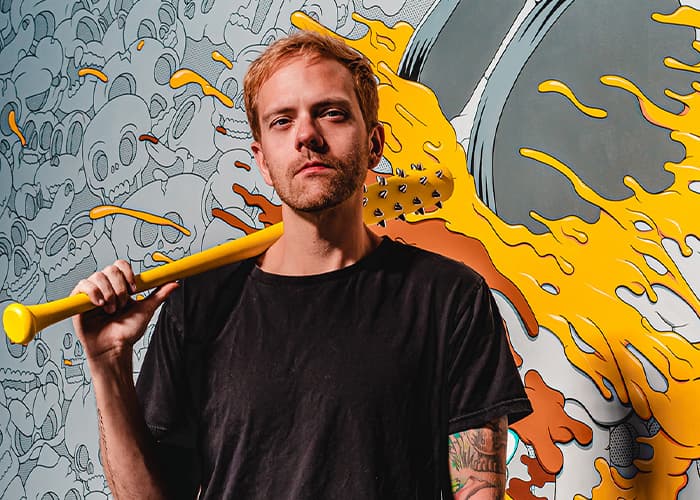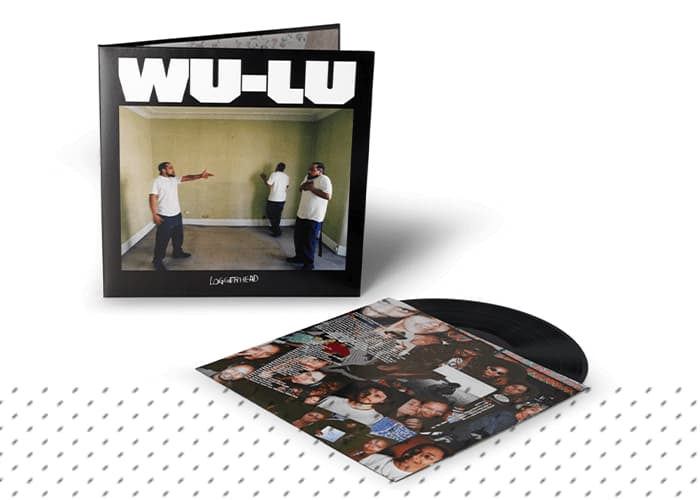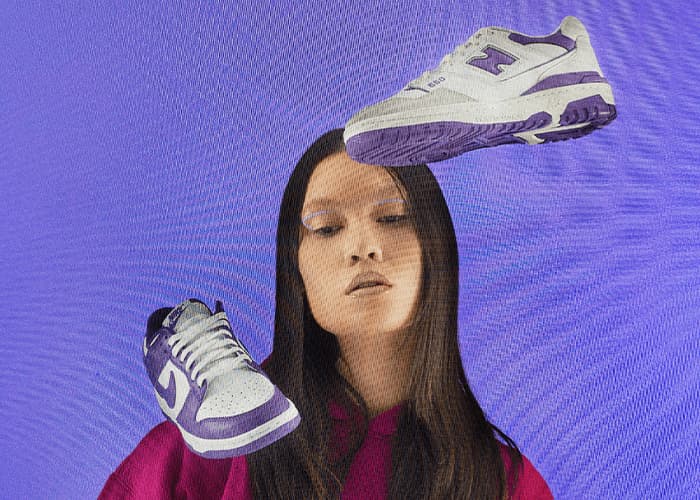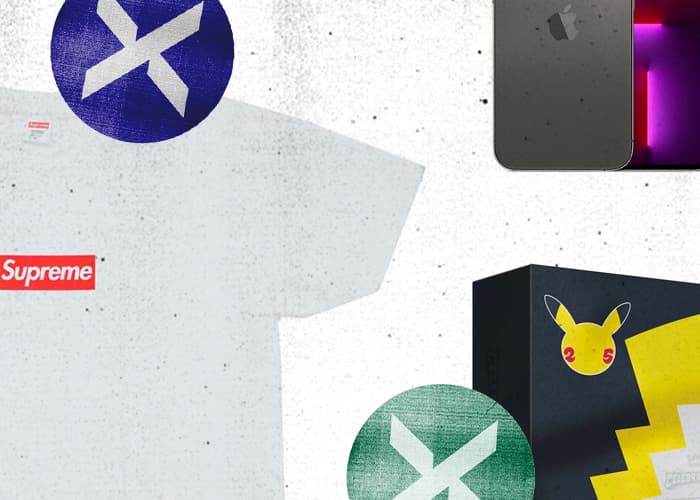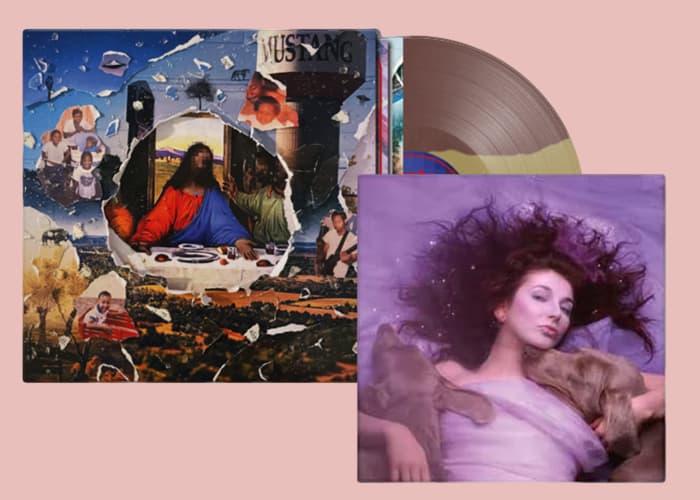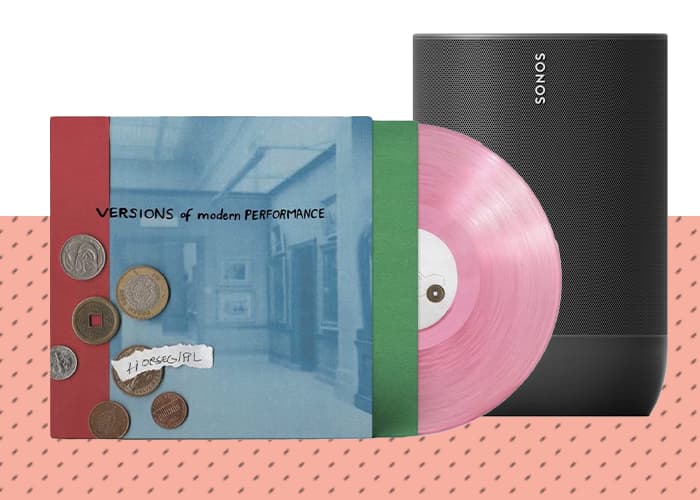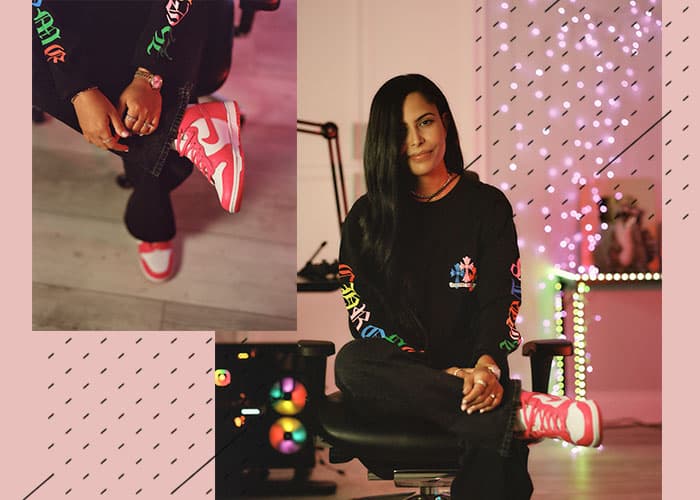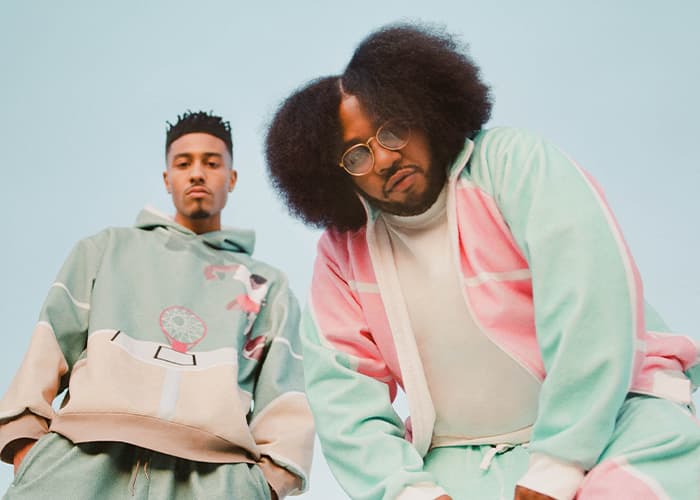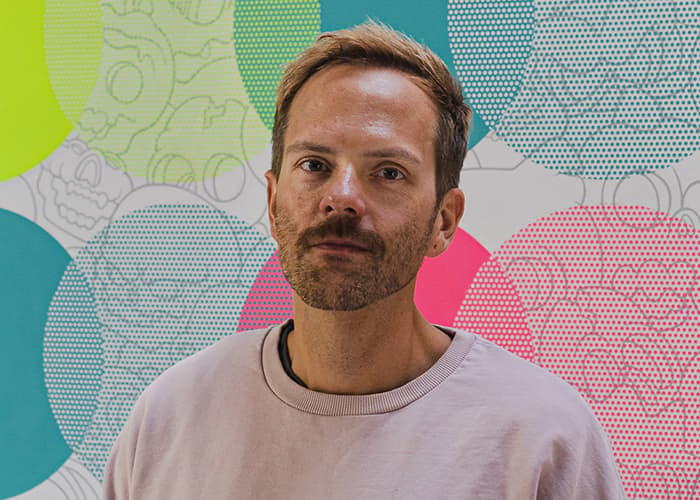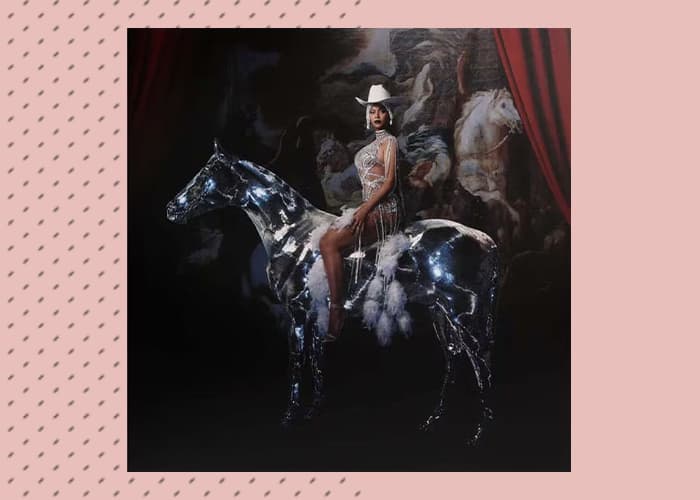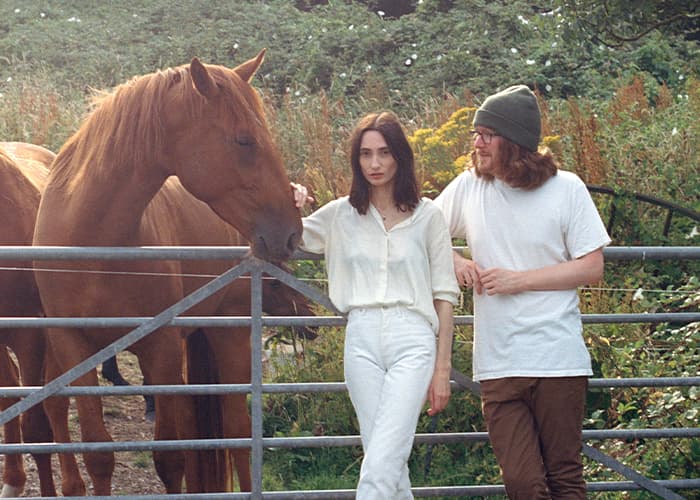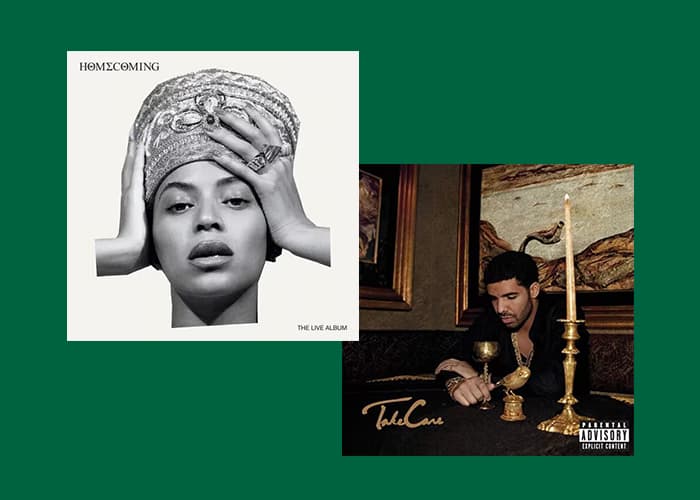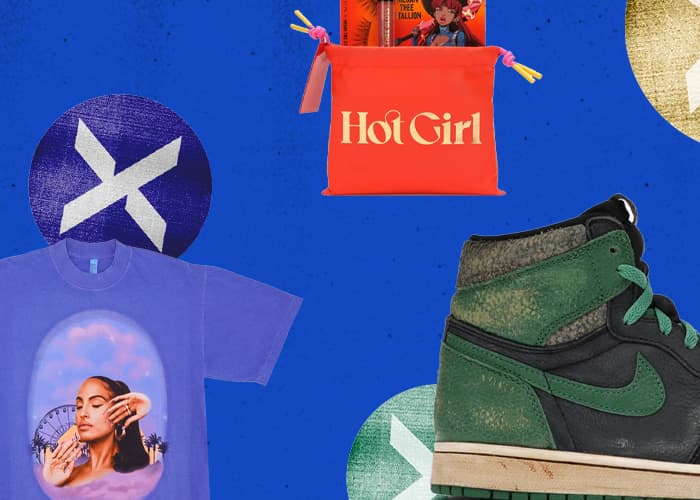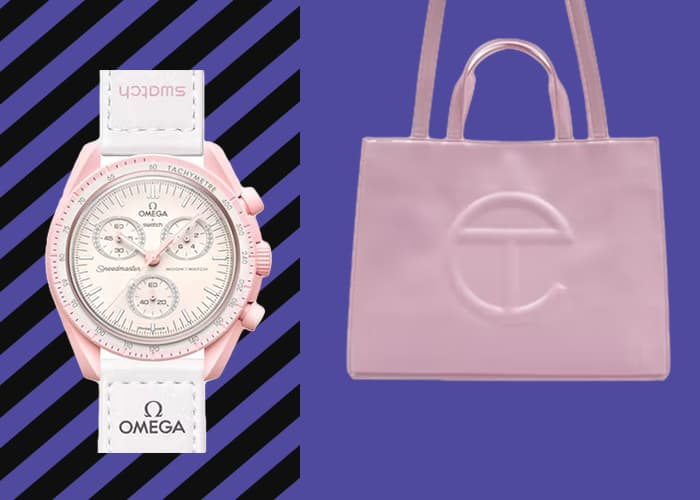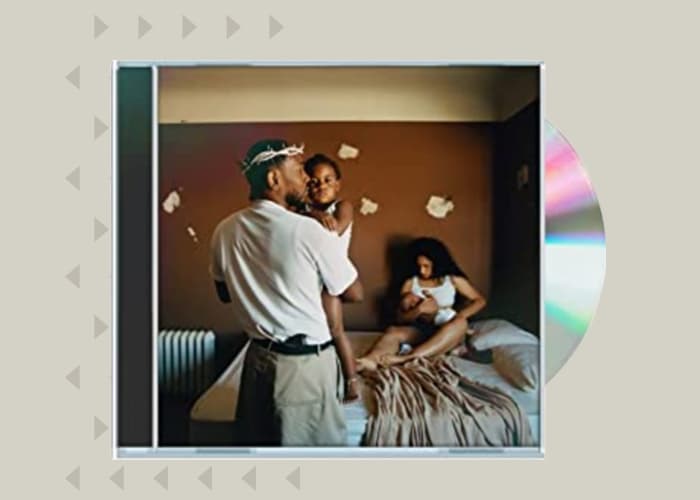
In 2013, activist and DJC director Fury Young began Die Jim Crow Records as a concept album inspired by Michelle Alexander’s The New Jim Crow and Pink Floyd’s The Wall. What started out as a plan for a single album grew into a record label and Die Jim Crow Records was formally established in 2018. In 2019, BL Shirelle joined DJC as deputy director. Joining DJC is the result of BL Shirelle’s 20-year journey through Pennsylvania’s state prison system. From the time she was 12 until she was 32, Shirelle has lived under almost constant, state supervision. As a self-described “unicorn” who made it out, Shirelle works tirelessly to humanize incarcerated individuals to the wider society through music. But don’t think the music is an afterthought of the mission. Shirelle, and DJC, only work with artists whose music is fire.
Shirelle recently released her debut album, Assata Troi, and is hard at work executive producing an EP from another DJC artist. For everything that has come before, Shirelle is excited about her future and the future of the label.
The following interview has been lightly edited for length and clarity.
What are your current influences as an artist?
Musically, I don’t have any particular current influences. I definitely try to stay away from my genre of music while I’m creating. Things have the habit of rubbing off on you, and you start feeling like other people, and I don’t want to do that. I get a lot of classic inspiration, nothing outside of the norm. I love Prince, ‘Pac is my favorite rapper of all time, and then you got Jay-Z. I have my silly personal favorites, Black Thought, Jill Scott, you know, stuff like that. I also like groups from other genres, Alabama Shakes, alternative ’90s like Nirvana and Soundgarden. And I love, absolutely love, R&B. That’s my favorite.
You recently released your first album, Assata Troi. What was the inspiration behind it?
Well, I just wanted to make sure that I covered all bases in hip-hop. I wanted to tell a story, which has always been a big part of hip-hop. I wanted to give you a little vibe of my city: “Phantom Cookie,” and the cadences that I used in that song. I wanted to give you some Golden Era from, from when I fell in love with hip-hop, when I realized I was pretty good, which is “Generational Curse.” I wanted a throwback to the people who I loved, like the Rock-A-Fella era, State Property. I exercised my lyricism in certain songs. I also wanted to include melody and rhythm, as well. I wanted people to understand that you don’t have to just either do one or the other. You don’t have to be a hard-hitting bar spitter but can’t write a hook or sing a melody. I wanted to be able to use different genres, like R&B, and rock. I wanted to make sure I embodied pretty much everything that I think hip-hop embodies.
What are your influences running a label as the deputy director of Die Jim Crow Records?
As far as running Die Jim Crow Records, I’m actually looking at more forward-thinking labels like TDE [Top Dawg Entertainment], and Dreamville. I’m looking at people who I feel like everything they do is extremely amazing because that’s what I feel like we have with every single one of my artists. We have no filler artists; we have no artists who only have a cool image but their music sucks. Every one of our artists is supremely talented. So I look towards labels which I feel puts talent first, above all else. As an executive, I think what I’ve done is unprecedented when it comes to record contracts and the business side. Nothing we do is standard. You had Kanye tweeting about stuff that he wants to be done in the music industry regarding contracts that we’ve already done. You know, I think all these other people and labels should be looking up to us [laughs].
Have any labels reached out to you about DJC and what you’re doing?
Major labels? No, they haven’t. It would be cool if we had some huge distribution. But working with an actual label? I’m not interested in getting in bed with them to keep things status quo. I’m trying to change where we are as far as music ownership, masters ownership. I’m trying to change that history of exploitation. To get back in bed with labels who have traditional ways of doing business would be counterproductive to what we do.
When you were first putting DJC together, did you face any resistance?
No, absolutely not. We already had a lot of people supporting us because we had a lot of brand sweat equity. People already trusted Die Jim Crow. Our supporters already trusted what we do. So it only made sense to become a label as well as a non-profit organization because we had such dynamic and close relationships with the people that we worked with. Everything that has happened has only ever been organic. It all started as just an album, and then we dropped the EP as a prequel to the album. Then it became an organization, and now it’s an ever-growing thing. There was never a moment where I was like, “Hey, what do you think we should make?,” when we thought of the idea to make a record label. We just did it. When we thought about making the organization into a non-profit, that’s what we did.
At every step of the way, we got huge support. We raised $50,000 through Kickstarter to become a record label. The public supported us in that effort. So not too much pushback. Any of the pushback I’ve gotten in my personal or professional life from artists or whatever are from people who are usually not doing anything themselves. So you have to be careful where you get your advice from. Some people think your dreams are too big because they’re afraid to dream for themselves.
What do you think people don’t understand or misunderstand about Die Jim Crow Records?
People don’t understand that the music that we make is top tier. I can put my album against any album in the marketplace, as far as hip-hop or rap is concerned, against anything that has come out in the past five years, we can put it up. We have the Territorial album coming out, a combination of blues, hip-hop, and Americana. It’s amazing. I can put it up against any traditional Americana album that’s come out in the past five years. So I think sometimes, even though this is clearly a social movement, this is clearly a movement to humanize people behind bars through music. I think people think that this is some type of charity, and they gloss over the music. They focus on the story and all that stuff that I just talked about in my life. But they don’t focus on the fact that if they listen to my album, they won’t be able to find a better body of work from a female rapper, maybe Missy Elliot, maybe Lauryn Hill. Outside of them, the conversation is closed. We can then go to the list of male rappers, and you’re going to have to put me up there. That’s what people are missing. I think people are missing the fact that we make great music.
What do you think is the most overrated right now?
That’s a really broad question. Let me narrow it down to the artists that I think are the most overrated right now. It’s crazy because I love some of these people, and I don’t like upsetting anyone. But, I would say anybody who’s been on fire, who’s had their run lately. I feel like they’re overrated in the rap world. Lil Baby is on a tear right now, and he’s a monster. He’s dominating right now, but he’s overrated. He doesn’t really change up his concepts. DaBaby, the same thing: huge run, really successful, and proud of everything he’s doing, but everything sounds the same. So for me, most people at this point who get their run in hip-hop where they go on their string of hits are overrated. Anyone you can name who’s been running that shit for the past three years is overrated.
Do you think that’s a reflection of the way the music industry is structured? Or do you think the artists run out of ideas?
I think that it’s totally the industry. I think that it’s the algorithm. I think that whatever they put in front of the face or the ears of the public is what the public will consume. You have to be an avid music listener to search for exactly what you want because music is saturated by whoever has the money behind them. I 100% think that is the industry and how they’re working to stack the deck regarding the algorithms that go into streaming and digital platforms. I don’t put it on the artist. If I want to make a song, and I want to make the same song a thousand times, that’s on me. It has nothing to do with the ears that it reaches. The audience has everything to do with the industry. And it has everything to do with the digital streaming platforms.
What do you think is the most underrated right now?
I think Rapsody is super underrated. I think Wale doesn’t get the flowers that he deserves. Oh, sorry. In the R&B world, there are baby legends, like Jazmine Sullivan. She could be an icon, but I don’t know why she’s not there yet. There are a lot of R&B artists who are super, super underrated, though. Jazmine Sullivan is my number one underrated.
What are you excited about right now?
I am excited about executive producing my artist B. Alexis. She’s 30 years old and serving a 30 year sentence in South Carolina. She’s been incarcerated since she was 17. She’s one of the best lyricists that I’ve ever heard. And I have the honor of executive producing her project. I’m super excited about it because this is my first time behind the boards, actually creating someone else’s sound. It’s a super-duper challenge and super-duper honor. I’m excited because I feel like this is the next stage of my career. I feel like it’s going to either jumpstart a whole different chapter in my career, or, you know, maybe not so much, but we’ll see [laughs]. But she’s amazing. So whatever happens with the album is on me now; she’s done her part.
How do you find the artists? Working with artists who are incarcerated, I imagine it can be kind of tough to connect.
Prison is like the old school whisper in the can with the string type of thing. News there moves really fast. So if someone comes to prison and is like a stellar guitarist or lyricist or whatever, there’s someone in prison who knows about that. They’re going to reach out and say, “Yo, there’s this guy; you’ve got to check him out.” That’s usually how we find a lot of our artists. And then we have to go through the red tape of actually getting access to the prison, which is a whole different game and a whole different beast. That is the part that’s the most complicated, but finding out about artists is not super hard because anybody who deals with us on that level, they’d want us to be exposed to the best talent that there is.
After you hear about a new potential artist, what’s the process of working with the prison authorities?
A lot of times, they don’t always want us to come in. But sometimes they do want us to come because they think we’re like this weird charity program. They think we’re going to come in and be like, “Hey! we’re going to record music with you guys,” and, “This is how you write a song.” Then they think the songs are all going to be about how everybody has changed their ways. Any problems usually come when they see what we actually do. We let them speak their truth. This is not us going in thinking we’re offering services to people who’ve done some shit before. We’re fucking with superstars. These people are masters; they know what they’re doing.
We’re not here to sell their voices, either. We’re here to amplify. That’s where the miscommunication comes in. There’s a lot of red tape that you have to get through. We’ve been denied many times. We’ve been denied by the state of Pennsylvania prisons, my home state. Even though they prop me up about my successful reentry, they play my videos, and they look at my press and all that. They say, “Look what we did for her.” But they won’t let me come back and teach my own programs. We run into a lot of that, and we just keep it moving. Even after getting access, there’s also a lot of red tape to release the music. There’s a lot of censorship that we fight against. It’s definitely not an easy process. For every 10 prisons we talk to, we probably only get access to one.
And all this work you’re doing is national, right?
So we do state prisons. We have projects from Ohio, Colorado, South Carolina, and Mississippi, and other states. We’re actually a lot more successful getting access down South, which you wouldn’t think that’d be the case. The thing about all this is its politics, and it’s tricky. I thought it would be a breeze going back to PA or getting in in New York where we’re founded, but that’s not the case. You end up being surprised about Oklahoma letting you in; you’ll be surprised about which state will give you the opportunity versus which state lets things fall.
What’s next for you?
I do have a lot of aspirations and dreams and all that. My next personal thing is owning a home. I’ll be there pretty soon. That’s a huge accomplishment coming from the background that I come from. I’m like the unicorn. I made it through a very tumultuous childhood. My mother had an addiction issue, and I was in and out of jail since I was 12 years old. Now at 32, 20 years later, I’m finally off of any type of supervision, no incarceration, no anything; it’s been a 20-year journey.
Now here I am about to buy a house. I think that that’s amazing. When I look at most people who I grew up with, they might be in a lot more unfortunate circumstances. Now that I’m in my early 30s, a lot of them are in the ground; a lot of them are incarcerated. I don’t have many peers that I grew up with that I can go hang out with. I just feel incredibly blessed, extremely lucky. I’ve been in shootouts with police, and I’ve been shot by the police, all kinds of stuff. So to still be here and to be in a position where I may be able to have something to leave to my children, which a lot of black families tend not to have. Every generation has to find a way to make it, and then the next generation has to find their way to make it. To possibly change it from the depth of poverty and from a lifestyle that I’ve lived, I think it’s truly a blessing and amazing.


